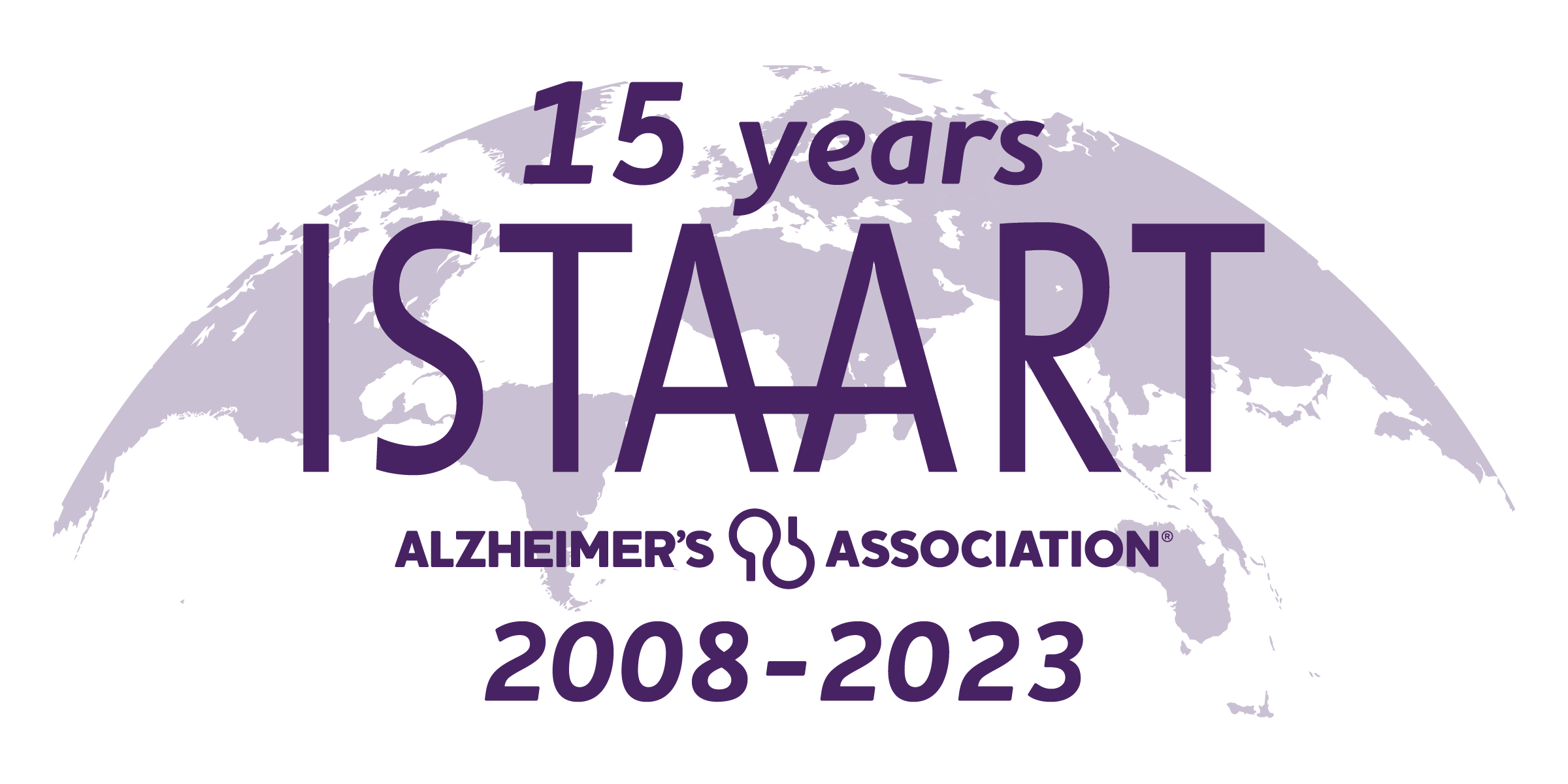Transforming Clinical Trial Data into Actionable Insights
In this episode of ISTAART Voices, Dr. Sietske Sikkes and Dr. Mark Dubbelman reveal the complex challenges of pooling data from multiple Alzheimer's disease clinical trials. Their research highlights significant barriers in accessing and analyzing historical trial data, demonstrating the critical need for more open and streamlined scientific collaboration. This discussion underscores the importance of making clinical trial data more accessible to advance personalized medicine and understanding of Alzheimer's disease treatment responsiveness.
Featured Paper from Alzheimer's & Dementia®: Translational Research & Clinical Interventions
Brain Training vs. Cognitive Decline: What Five Years Revealed
In this episode, Dr. Sylvie Belleville talks through the latest results from a trial involving older adults experiencing mild cognitive impairment. This work emphasizes how targeted cognitive training and memory interventions could potentially slow the progression of mild cognitive impairment and may help sustain long-term cognitive function. The trial results offer compelling perspectives on non-pharmacological interventions for delaying the onset of dementia in individuals experiencing early cognitive changes.
Featured Paper from Alzheimer's & Dementia®: Diagnosis, Assessment & Disease Monitoring
Exploring Divorce, Widowhood, Emotional Stress, and Dementia Risk
Stressful life events like divorce and widowhood can have profound effects on brain health. In this episode of ISTAART Voices, Dr. Avinash Chandra shares his research exploring how marital dissolution may contribute to increased amyloid pathology and memory decline. His study offers compelling insights into the intricate relationship between life stress, brain biology, and cognitive aging, paving new avenues for understanding dementia risk factors.
Featured Paper from Alzheimer's & Dementia®: Diagnosis, Assessment & Disease Monitoring
Alzheimer’s Treatments and Other Drugs: Comparing Biologics
New anti-amyloid therapies are transforming the treatment landscape for Alzheimer's disease. In this episode of ISTAART Voices, Dr. Gregory Jicha and Dr. Peter Nelson compare emerging Alzheimer's treatments to biologics used in cancer and other diseases. Their insightful analysis highlights the significance of new disease-modifying therapies, further illustrating why choices and access to treatment are crucial for individuals living with Alzheimer's disease.
Featured Paper from Alzheimer's & Dementia®: Translational Research & Clinical Interventions
Hearing, Conversation, and Cognitive Decline: Tracing Complex Connections
Hearing loss increases the risk of developing dementia in later years. In this episode of ISTAART Voices, researchers Dr. Joshua Stevenson-Hoare and Dr. Kouki Tomida dissect the ways in which hearing loss may accelerate dementia progression. Through studies conducted in Germany and Japan, their works explore how early hearing difficulties and reduced conversation could signal future cognitive decline, offering compelling perspectives on early intervention and prevention strategies.
Featured Paper from Alzheimer's & Dementia®: Diagnosis, Assessment & Disease Monitoring
Featured Paper from Alzheimer's & Dementia®: Diagnosis, Assessment & Disease Monitoring
Protein Signatures, Blood Vessels and Alzheimer's Disease
In this episode, Dr. Aleksandra Wojtas and Dr. Nicholas Seyfried discuss their latest research investigating the critical role of cerebrovascular dysfunction in Alzheimer's and related neurodegenerative diseases. They explain how analyzing the unique protein signatures found within the brain's blood vessels is uncovering new insights into the early development of Alzheimer's pathology. This innovative approach has the potential to lead to earlier detection methods and new treatment avenues.
Featured Paper from Alzheimer's & Dementia®: The Journal of the Alzheimer's Association
The Intricate Interplay of Alzheimer's and Lewy Body Pathologies
In this episode, we explore the complex relationship between Alzheimer's and Lewy body pathologies. Our guest Dr. Duygu Tosun, explains how cutting-edge research methods are helping uncover this complex interplay of brain pathologies, and why understanding each individual's unique profile will be crucial for developing more personalized treatments in the future.
Featured Paper from Alzheimer's & Dementia®: The Journal of the Alzheimer's Association
Decoding Alzheimer's: Using Algorithms To Predict Cognitive Decline
In this episode, we speak with Dr. Mohammad Fili and Dr. Auriel Willette about the exciting applications of machine learning and brain imaging in the context of Alzheimer's disease and related dementias. They explain how combining emerging technologies with existing large datasets can uncover compelling patterns in the brain that distinguish those on a trajectory of cognitive decline from those who maintain or even improve their mental abilities as they age.
Featured Paper from Alzheimer's & Dementia®: Diagnosis, Assessment and Disease Monitoring
Alzheimer's and the LGBTQIA+ Community: Uncovering Unique Challenges
Alzheimer's disease profoundly affects the LGBTQIA+ community, yet research remains limited. In this episode, we speak with Dr. Jace Flatt about the risks and disparities LGBTQIA+ older adults face regarding cognitive decline and dementia. We uncover the challenges they navigate and explore innovative approaches to engage them in research.
Featured Paper from Alzheimer's & Dementia®: Translational Research & Clinical Interventions
Exploring the Finer Details of Cognitive Decline in Parkinson's Disease
In this episode, we sit down with postdoctoral researcher Dr. Dana Pourzinal, to discuss her work exploring the varied cognitive profiles of Parkinson's disease. Through an international collaboration, this research identifies distinct subtypes of cognitive decline, shedding light on the complexity of Parkinson's. By pinpointing these diverse cognitive patterns, this work aims to enable earlier interventions and enhance the quality of life for those living with this neurodegenerative disorder.
Featured Paper from Alzheimer's & Dementia®: Diagnosis, Assessment and Disease Monitoring
Hearing Loss, Dementia, and Women: Examining Links and Disparities
This latest episode explores how women with hearing loss may face a greater risk of dementia than men, as Dr. Megan Fitzhugh and Dr. Judy Pa walk us through their work investigating the relationship between age-related hearing loss and dementia risk, with a focus on potential sex differences. Their work places a crucial lens on the need to consider biological sex and social factors when tackling disparities in Alzheimer's disease research.
Featured Paper from Alzheimer's & Dementia®: Diagnosis, Assessment and Disease Monitoring
Recruiting for Success: Maximizing Potential in Dementia Trials
In this episode with Dr. Amanda Szabo-Reed and Dr. Ellen Binder, we delve into the recruitment outcomes of a multisite clinical study focused on the effects of exercise and intensive vascular treatment on cognitive function in older adults at risk for Alzheimer's disease. Their work reveals the effectiveness of professional referrals and direct contacts over email and traditional media, and underscores the importance of targeted recruitment strategies in maximizing participation in dementia clinical trials.
Featured Paper from Alzheimer's & Dementia®: Translational Research & Clinical Interventions
Revealing New Insights in Genetic Diversity and Alzheimer's
This episode explores the recently published work of Dr. Robert Barber and Mohammad Housini in studying the nuances of diverse populations in Alzheimer's disease research. They discuss their analysis of genetic risk factors across racial and ethnic groups using a large community-based cohort study.
Featured Paper from Alzheimer's & Dementia®: Diagnosis, Assessment and Disease Monitoring
Honing in on the Genetics of Alzheimer's Disease and Down Syndrome
In this episode, we talk to Dr. Carlos Cruchaga, whose work and laboratory explore the fine genetic details of neurodegenerative diseases. Dr. Cruchaga talks about the relationship between Alzheimer's disease and Down syndrome and explains the genetic contributions to these conditions in molecular detail.
Featured Paper from Alzheimer's & Dementia®: The Journal of the Alzheimer's Association
Unraveling Dementia Risk: The Neighborhood Memory Connection
In this episode of ISTAART Voices, Dr. Rachel Peterson shares insights into the connection between childhood living environments and late-life cognition, shedding light on how social and environmental factors influence healthy brain aging and the risk of dementia.
Featured Paper from Alzheimer's & Dementia®: The Journal of the Alzheimer's Association
Molecular Mysteries of Alzheimer's: Exploring New Avenues
In this episode of ISTAART Voices, we delve into a new study on tau pathology with Dr. Amy Arnsten and Dr. Shveta Bathla, who discuss their research findings and the potential implications for Alzheimer's treatments. Their research sheds light on new treatment approaches for Alzheimer's disease.
Featured Paper from Alzheimer's & Dementia®: Translational Research & Clinical Interventions
The Hidden Realities of Dementia in Underrepresented Communities
Welcome to the inaugural episode of ISTAART Voices, a podcast of the Alzheimer’s Association. Host Oz Ismail explores the latest in Alzheimer's and dementia research, treatment, and practice in conversation with researchers shaping the field. In this episode, we dive into the challenges faced by underrepresented communities in Alzheimer's research, featuring an interview with Dr. Sharon Sanz Simon on her work with Brazilian immigrants in the US.
Featured Paper from Alzheimer's & Dementia®: Translational Research & Clinical Interventions
&nbs
The views and opinions expressed in this podcast are solely those of the guests and do not necessarily reflect those of the Alzheimer's Association. The Alzheimer's Association does not endorse any external product or service. This podcast is for informational purposes and is not intended to provide medical advice, please consult your physician.

Stay up to date on articles in Alzheimer's & Dementia®.

Claim your credits





.png)